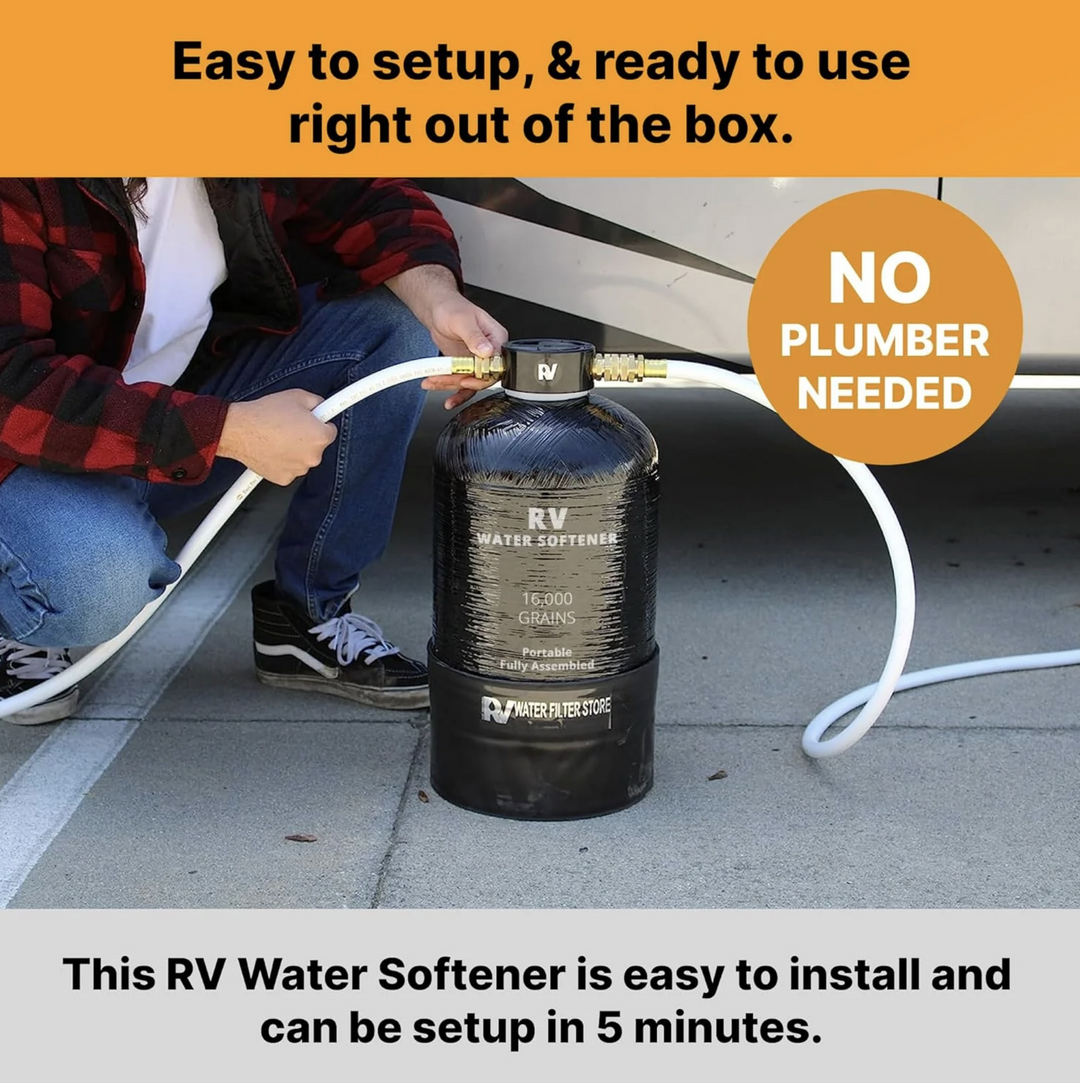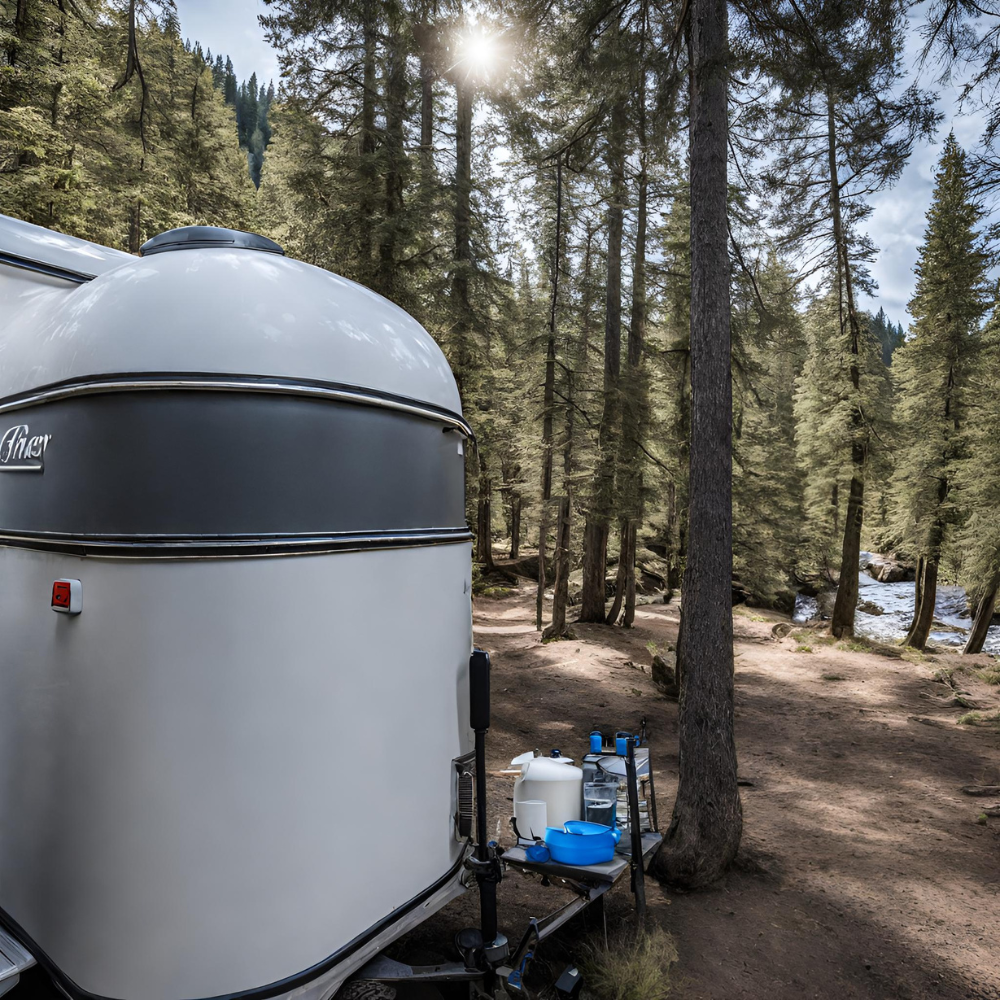Top 7 Mistakes First Time RV Owners Make
If you want to live a free life on the move, without being confined to a place, then a recreational vehicle (RV) is what you need. It is a trailer or motor vehicle designed with living quarters. It typically includes a kitchen, bathroom, one or more bedrooms. It is a house on the move and ranges from utilitarian to luxurious.
Utilitarian means the RV has only a sleeping quarter and necessary cooking facilities. Low-income earners usually buy this type. More affluent people go for the Luxurious style with air conditioning (AC) and water heaters. They also contain a television, satellite receivers, and quartz countertops. It is typically a home away from home.
Types of Recreational Vehicles
There are different recreational vehicles, and as mentioned earlier, the size of your pocket determines the one you’ll get. The common types are:
Travel Trailer
A travel trailer is a non-motorized vehicle and very common. At one point or the other, you’ve seen this RV type on the roadway. Owners usually hitch it to a pickup or car. Travel trailers come in different sizes like tiny jellybean-shaped models, usually 13 to 40 feet.
It has a chuckwagon kitchen in the rear with picture windows and a sliding glass patio door. Some of the benefits of a travel trailer include:
- Concrete walls and security door.
- Two or more bedrooms, with floor plan layouts.
- Unhitched trailer, and works efficiently with a car.
Fifth Wheel
A fifth wheel offers you more excellent stability and more space. It is a favorite among many RV lovers and nicknamed “Fiver.” The recreational vehicle is suitable for people taking long trips and making it a permanent home.
It works with a tow truck, and owners use the overhang as the bedroom, the living room, or a kitchen. The fifth wheel derived its name from its U-shaped design. You can mount it onto the cargo bed of a tow truck. Some of the advantages of the RV include:
- Large living space for bulk items and a pass-through area in the basement
- Well-equipped auto-leveling system for easy set-up
- Multiple slide-outs for kitchen, living area, bedrooms, and wardrobes
- High ceiling for more headspace and taller cabinets
Lightweight Trailer
You can tow a lightweight trailer using a light-duty truck, SUV, and crossovers. A sedan equally works with this RV type. As the name implies, the manufacturers used light materials and shaped the vehicle aerodynamically.
If you like traveling light and don’t want the stress of towing a heavy vehicle, get this RV. You’ll shed thousands of pounds and still have the features and durability you desire. The key benefits of this vehicle are:
- It’s environmentally friendly as it improves fuel efficiency.
- It aids speed because the lightweight makes it easy to tow.
- Innovative design featuring all the amenities a modern person needs to survive.
Class A Motorcoach
If you don’t want the excess stress of towing a trailer, then a Class A Motorcoach is ideal for you. This RV is quite common, and the design imitates commercial buses or trucks. They are usually the largest vehicle on the road.
The vehicle boasts of spacious areas for relaxing and sleeping. It takes amenities to a higher and classier level with an upscale kitchen and bathrooms. It uses a gasoline and diesel engine located at the back. Some of the benefits of this RV include:
- The ability of the occupants to use the restroom while on the move
- Large pass-through compartments that can accommodate large items like grills, patio furniture, and coolers
- Multiple slide-outs for increased living and storage space
- High towing capability for hauling a cargo trailer
Class B Motorhome
Class B is small and streamlined. They are agile, fuel-efficient, and offer a living space best suited for small groups. Although it doesn’t have slideouts, it offers luxurious kitchen galleries, beds, and restrooms.
Additionally, this RV type is ideal for narrow roads and congested streets. You can easily maneuver, park, and access conveniences while in transit. It has a hitch to tow trailer, but with less capacity than Class A or C motorhomes.
Class C Motorhome
This RV type is ideal for larger families looking for an outdoor experience. Class C Motorhomes are famous for their raised sleeping or storage areas, extending over the RV’s cab. It offers more living space than Class B Motorhomes but is smaller in size than Class A with better gas mileage.
Class C motorhomes are of three types: Full-sized, Compact, or Supersized. The compact Cs featuring a Ford Transit or Mercedes cutaway chassis are becoming quite popular. The RV offers a toy hauler to trasnsport ATVs or bikes, and most have at least one slide-out.
Having an RV is so exciting that owners are ready to get on the road once they leave the dealer’s lot. They pack up everything and start their trip without familiarizing themselves with the dos and don’t of owning an RV. It causes them to make several rookie mistakes. We’ll look at these jumbles next.
Seven Top Mistakes New RV Owners Make
The top mistake made by new RV owners are:
1. Not Making a Checklist
So, you bought the RV, read the manual, and feel you have enough information to begin your trip? Think again, because you’re way off. Yes, the first step is reading the manufacturer’s handbook, but you have to do so much more than that.
Before getting on the road as a first time RV owner, make a checklist. You have to cross every “T” and dot all “I.” For example, if you’re traveling with a travel trailer or a fifth wheel, you’ll need to take more steps than a motorhome.
To ensure you don’t let all the fluttering and anxiety get to you, start your preparation a day or two to the departure day. Fill your tow vehicle or rig with gas; this way, you’ll avoid stopping a few hours into your trip.
Clean, strap, and store all the items you’ll need on your way. Here’s a workable checklist to help you:
- Ensure to put the stabilizer legs up before moving. A lot of people forget this otherwise simple task.
- Close all the windows and vents.
- Check the brakes and turn signals.
- Turn off the water pump and water heater.
- Check the tire pressure to ensure it’s not deflated.
- Ensure the tailgate is up. It is another common mistake most people make.
You can add anything else you think is vital to your trip to the list. Whenever you verify that you’ve carried out a task, tick it and move on to the next. Using a checklist will ensure you get stuck in the middle of nowhere out of gas, and you don’t leave anything behind.
2. Not Understanding What Every RV Needs
Many people are uninformed and unprepared to own an RV, and most times, they realize it too late. One moment they are buying a recreational vehicle, the next, they are on the road.
While enjoying the new car and the exhilaration of being on the road, they realize the RV is missing many things. For example, the water gets too cold because the temperature regulator stops working or there’s a little fire, and you don’t have an extinguisher.
These mistakes are avoidable with the right information. Here’s a list of what every recreational vehicle needs:
- A Surge protector
- Toilet chemicals
- Electrical adapters
- Sewer kit
- Water pressure regulator
- RV-friendly toilet paper
- Drinking water hose
- Tire pressure gauge
- Leveling blocks
- Wheel chocks
- Extension cords
- Electrical and duct tape
- Shovel and extra cotter pins
- Battery jumper cables and flashlights
- Extra motor oil and transmission fluids
- Fire extinguisher and emergency road kit
Ensure you have the right kitchen and cooking utensils, clothing and bedroom items, and food staples. Pack personal items and toiletries, and camping and outdoor fun gear. The latter is vital if you have children. Add any other thing you think you’ll need but keep them down to essentials.
3. Relying on Google Maps and Not Validating Your Route
Technology is helpful, and Google Maps has rescued us in more ways than one. But like most things in life, maps fail, and sometimes they do when you need them the most. Imagine being stuck in a place without receptions and no idea of where your destination is.
Scary right? Several people make the mistake of relying solely on their devices for directions that they forget to validate their route or take a map. Don’t just type your destination and head out; ensure you entered the right direction.
Learn how to study a map to avoid losing your way when technology fails. Don’t depend on truckers to help you with directions. You can drive for miles without seeing any, and highways aren’t always safe.
One way to ensure you don’t end up on a remote mountain road is by buying RV specific GPS. The tracker maps contain marked areas, and they’re easy to read. It will take you one step closer to avoiding mistakes.
4. Planning To Learn as You Go
Learning as you go is a big mistake that is easily avoidable. Don’t plan to hit the road the same day you buy your RV. Don’t skip the practice run; your first day might go hitch-free, but the second might not.
A trial run can be a simple camping trip for a week or a few days, but do it to accustom yourself to life on the road. It includes knowing how to back out of a parking lot without mistakes and knowing how to set up camp.
A practice run will also familiarize you with the RV’s inner workings and help you gain more confidence while on the rod. You can take the trial run with a rental RV and then proceed to buy yours once you’ve gained a little experience.
If you’re planning to learn as you go, avoid going too fast and too far. It’s not always about the destination but the journey. Not only will moving too fast leave you exhausted, it is dangerous. Know your limits and take time to rest. It will help you stay alert and avoid accidents.
5. Not Making Reservations and Disobeying Camp Rules
Most RV owners stay at campgrounds before getting on the road again. They know every campground’s rules and regulations within a 500-mile radius. But it is different for a novice. The same way you can’t access a dating site without registering, you won’t be able to enter a campsite without a reservation.
Campgrounds may not be able to accommodate you if:
- They only allow trailers and motorhomes that are ten-year-old or less.
- They do not have the right size for a Class A RV.
- The campground does not allow kids or charge a child tax, and you’re unwilling to pay.
- The campsite only allows seniors.
- The RV campground does not have space by the time you arrive.
The best thing to do is research the campground and call ahead of time. Conversely, you can enter the camp but get kicked out for not following the rules. The campsite is an organized community, and you will do well to follow their rules.
The laws are pretty simple and not difficult to obey. Some of the standard rules are:
- Familiarizing yourself with the camps rulebook.
- Staying away from the campsite of other campers.
- Keeping your children away from other campsite residents.
- Keeping your pets away from other campers.
6. Being Unprepared at the Dump Station
Those who have never used a recreational vehicle often wonder what happens to the bathroom and toilet content. The simple answer is a dump station. Most new RV owners who have never taken part in this time-old activity usually find themselves fumbling if unprepared.
Apart from wasting your time and that of other people, this mistake makes you unpopular among fellow campers. If you are a people person, you will not appreciate this. To avoid this mistake, familiarize yourself with how to empty your tank before arriving at the dump station.
If possible, practice before getting on the road and ensure you understand the process. The RV manual will help you with this and several videos on YouTube. Put everything you need in one place for easy access when you arrive at the dump station.
7. Forgetting to Do a Walk-Around
As the name implies, a walk-around is going around your RV and ensuring that everything is where it is supposed to be. Go round the recreational vehicle twice, and if you feel like a third time. You don’t want to leave anything out of place.
You can drive off and have your sewer hose dragging behind you. It happens more often than you think. During your walk-around, check:
- Your antenna, lights, tow vehicle connection, windows, and vents
- That you closed your storage doors securely
- That you didn’t leave your fridge and cupboard open
- To ensure that your signals, brakes, and headlights are functional.
Finally, when on the road, ensure that you pay attention to the sounds coming from your RV. A clanging sound means something is out of place and needs fixing. Stop immediately and attend to it. Remember that the vehicle is your home, so treat it with utmost care.
Safety Tips for New RV Owners
Whether you live in a fixed location or are frequently on the move, safety will always be a priority. As an RV owner, many things can go wrong no matter how careful you are. To help you stay safe at all times, here are some tips:
Follow the Rule of Thumb
Familiarize yourself with your environment, and study your surroundings before leaving your RV. If a place does not feel right or has some red flags, go and find another parking space. Don’t talk yourself into staying there, and it doesn’t matter if other RVers are camping them.
Keep an Eye on the Weather
Atmospheric conditions play a vital role in where you should stay and how far you should drive. Before heading out, check the forecast to ensure you don’t get stuck in a heavy downpour.
Many RV owners had found themselves dealing with heavy rains when they were less prepared for it. Some have ended up in muddy campsites for failing to check the weather.
Plan Ahead
Before heading to a place, get adequate information about the area. An RV once got caught in a Wildfire, killing the occupants. Thus ensure an area is relatively safe before camping there.
Check for the nearest police station, fire station, hospital, grocery store, pharmacy, vet office, and so on. Also, locate the closest tow company in case you need one, and carve out possible escape plans. Your safety depends on you, so map out all possible scenarios.
Stay Connected
Most RVers stay in remote country areas with little or no reception. Get cell boosters and ensure you stay connected to the outside world in case of emergencies. You should be able to call 911 when you need help, as you may be unable to drive to the police station or hospital.
Maintain Your RV Frequently
Your RV, like every other vehicle, needs frequent maintenance. If you drive from town to town without checking for oil or tuning the engine, you might break down suddenly. Pay attention to the vehicle’s tires, batteries, lights, and brakes.
Begin Your RV Journey Mistake Free
Everything we’ve discussed so far is essential. Like in most things in life, mistakes can happen no matter how you try to avoid them. The best thing to do is mitigate them and reduce their frequency. Now that you know the top mistakes new RV owners make, do well to stay away from them. Follow the tips shared in this article, and start your journey mistake-free.




